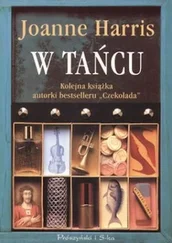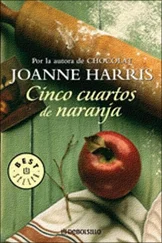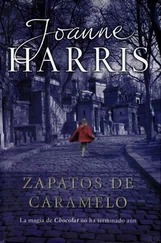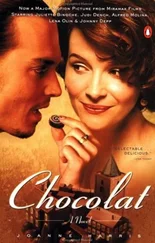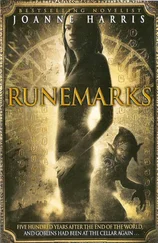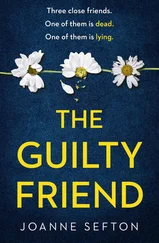‘Wait!’ Jay held out his hands to show her he meant no harm. ‘It’s all right. Don’t run away.’
The girl stared at him, whether in curiosity or hostility he couldn’t tell, her head slightly to one side, as if in concentration. There was no way of knowing whether she had understood.
‘Hello, Rosa,’ said Jay.
The child just stared.
‘I’m Jay. I live over there.’ He pointed to the farm, just visible behind the trees.
She was not looking directly at him, he noticed, but at something slightly to the left and down from where he was standing. Her posture was tense, ready to pounce. Jay felt in his pocket for something to give her – a sweet, perhaps, or a biscuit – but all he could find was his lighter. It was a Bic, made of cheap coloured plastic, and it shone in the sun.
‘You can have this, if you like,’ he suggested, holding it out across the water. The child did not react. Maybe she couldn’t lip-read, he told himself.
On his side of the riverbank the goat bleated and butted gently against his legs. Rosa glanced at him, then at the goat, with a mixture of scorn and anxiety. He noticed her eyes kept moving back to the discarded rucksack, abandoned by the side of the river. He bent down and picked it up. The goat transferred its interest from Jay’s legs to the sleeve of his shirt with unnerving rapidity. He held out the rucksack.
‘Is this yours?’
On the far bank the girl took a step forwards.
‘It’s all right.’ Jay spoke slowly, in case she couldn’t lipread, and smiled. ‘Look. I’ll bring it over.’ He made for the stepping stones, holding the heavy rucksack in his arms. The goat watched him with a cynical expression. Hampered as he was with the rucksack his approach was clumsy. He looked up to smile at the girl, lost his footing on a rain-slippery stone, skidded and almost fell. The goat, which was following him curiously across the stones, nudged past unexpectedly, and Jay took a blind step forwards, and landed squarely in the swollen river.
Rosa and the goat watched in silence. Both seemed to be grinning.
‘Damn.’ Jay tried wading back to the bank. There was more current than he had expected, and he moved drunkenly across the river stones, his boots skidding in the mud. The rucksack seemed to be the only dry thing on his person.
Rosa grinned again.
The expression transformed her. It was a curiously sunny, sudden grin, her teeth very white in her dappled face. She laughed almost soundlessly, stamping her bare feet on the grass in a pantomime of mirth. Then she was off again, picking up her shoes and clambering up the incline towards the orchard. The goat followed her, nibbling affectionately at a dangling shoelace. As they reached the top, Rosa turned and waved, though whether this was a gesture of defiance or affection Jay could not tell.
When she had gone he realized he still had her rucksack. On opening it he found inside a number of items only a child could treasure: a jar of snails, some pieces of wood, river stones, string and a number of the red talismans, carefully tied together with their ribbons to form a bright garland. Jay replaced all the treasures inside the bag, then he hung the rucksack up on a gatepost close to the hedge, in the same place he had hung the dragon’s head a fortnight earlier. He was sure Rosa would find it.
* * *
‘I HAVEN’T SEEN HER FOR MONTHS,’ SAID JOSÉPHINE LATER IN THE café. ‘Marise doesn’t send her to school any more. It’s a pity. A little girl like that needs friends.’ Jay nodded.
‘She used to go to the village playgroup,’ remembered Joséphine. ‘She must have been three, maybe a little younger. She could still talk a little then, but I don’t think she could hear anything.’
‘Oh?’ Jay was curious. ‘I thought she was born deaf.’
Joséphine shook her head. ‘No. It was some kind of infection. It was the year Tony died. A bad winter. The river flooded again, and half of Marise’s fields were underwater for three months. Plus there was that business with the police…’
Jay looked at her enquiringly.
‘Oh yes. Ever since Tony died Mireille has been trying to pin the blame on Marise. There’d been some kind of a quarrel, she said. Tony would never have killed himself. She tried to make out there was another man, or something, that together they’d conspired to murder Tony.’ She shook her head, frowning. ‘Mireille was half out of her mind,’ she said. ‘I think she would have said anything. Of course, it never came to that. The police came round, asked some questions, went away. I think they had the measure of Mireille by then. But she spent the next three or four years writing letters, campaigning, petitioning. Someone came round once or twice, that’s all. But nothing came of it. She’s been spreading rumours that Marise keeps the child locked up in a back room, or something.’
‘I don’t think that’s true.’ The vivid, dappled child Jay had seen gave no impression of having ever been shut up in a back room.
Joséphine shrugged. ‘No, I don’t think so either,’ she said. ‘But by that time the damage was done. Gangs of people gathering at the gate of the farm and across the river. Do-gooders, for the most part, harmless enough, but Marise wasn’t to know that, holed up in her house, with torches burning outside and people letting off firecrackers and throwing stones at the shutters.’ She shook her head. ‘By the time things settled down it was too late,’ she explained. ‘She was already convinced everyone was against her. And then when Rosa disappeared…’
Joséphine poured a measure of cognac into her coffee. ‘I suppose she thought we were all in it. You can’t hide much in a village, and everybody knew that Mireille had Rosa staying with her. The child was three then, and we all thought they must have made it up between them somehow, and Rosa was there for a visit. Of course, Caro Clairmont knew otherwise, and so did a few others, Joline Drou, who was her best friend at the time, and Cussonnet the doctor. But the rest of us… well, no-one asked. People reckoned that after what had happened perhaps they ought to mind their own business. And no-one really knew Marise, of course.’
‘She doesn’t make it easy,’ observed Jay.
‘Rosa was missing for about three days. Mireille only tried taking her out of the house once. The first day. That didn’t last long. You could hear her screaming right down to Les Marauds. Whatever else was wrong with her, she had a good pair of lungs. Nothing would make her be quiet, not sweets, or presents, or fussing, or shouting. They all tried – Caro, Joline, Toinette – but still the child wouldn’t stop screaming. Finally Mireille got worried and called the doctor. They put their heads together and took her to a specialist in Agen. It just wasn’t normal for a child that age to scream all the time. They thought she was disturbed, that perhaps she’d been mistreated in some way.’ She frowned. ‘Then Marise came to pick up Rosa from the playgroup, and found that the doctor and Mireille had taken her to Agen instead. I’ve never seen anyone so angry. She followed them on her moped, but all she could find out was that Mireille had taken Rosa to some kind of hospital. For tests, she said. I don’t know what they were trying to prove.’
She shrugged again. ‘If she’d been anyone else she could have counted on help from the village,’ she said. ‘But Marise – never says a word unless she has to, never smiles – I suppose people just minded their own business. That’s all it was really; there was no malice in it. She wanted to be left alone, and that’s what people did. Not that anyone really knew where Mireille had taken Rosa – except maybe Caro Clairmont. Oh, we heard all kinds of stories. But that was afterwards. How Marise stamped into Cussonnet’s surgery with a shotgun and marched him out to the car. To hear people talking you’d think half of Lansquenet saw that. It’s always the same, héh ! All I can say is, I wasn’t there. And though Rosa was back at home before the end of that week, we never saw her in the village again – not in the school, or even at the firework display on the fourteenth of July, or the chocolate festival at Easter.’ Joséphine drained her coffee abruptly and wiped her hands on her apron. ‘So that was that,’ she concluded with an air of finality. ‘That was the last we saw of Marise and Rosa. I see them from time to time – perhaps once a month or so – on the road to Agen or walking to Narcisse’s nursery, or in the field across the river. But that’s all. She hasn’t forgiven the village for what happened after Tony’s death, or for taking sides, or for turning a blind eye when Rosa disappeared. You can’t tell her it was nothing to do with you; she won’t believe it.’
Читать дальше

